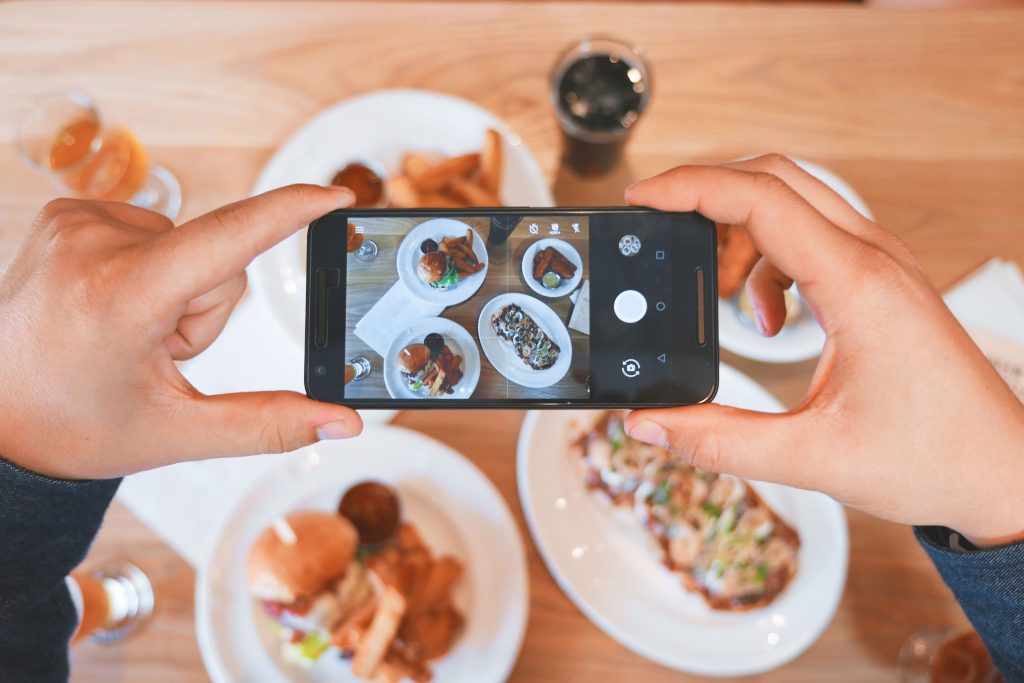Is it time we ditched our obsession with food trends for the sake of the planet?
By Julia Glotz.
As fashion takes a long, hard look at its reliance on trends, the food and drink industry should have a similar debate about whether incessant trend-driven NPD is compatible with sustainable consumption.
The fashion industry can learn a lot from food and drink when it comes to sustainability.
That was the message of a recent Vogue Business article, which looked at how concepts like ‘farm to fork’ and flexitarianism could translate to fashion.
As an industry that deals with hugely complex global supply chains and faces growing scrutiny of its environmental footprint, food certainly has many lessons to share about sustainability best (and worst) practice.
But that’s not to say it can’t learn a thing or two from what’s happening in other sectors. Because when it comes to sustainability, food can learn a lot from fashion too.
Living in a ‘post-trend’ world
One of the most interesting elements of the current sustainability debate in fashion is its reckoning with trends.
Clothes swapping was a major focus at London Fashion Week. Designers were using second-hand shoes on the catwalk at New York Fashion Week and John Lewis has just announced a ‘hand-me-down’ initiative to encourage parents to reuse children’s coats.
At the same time, so-called ‘capsule wardrobes’ are striking a chord with sustainability-conscious shoppers. These involve downsizing your wardrobe to a small selection of essential, quality garments that don’t go out of style.
At the heart of these concepts lies a fundamental – and potentially radical – idea: the most sustainable way to be a consumer in the 21st century may well be to ignore trends and have a fixed, signature style that remains relevant for years.
As a recent GQ thinkpiece put it: “If you can’t tell one season from the other, you’re motivated by a different kind of desire than just newness. You will learn to keep things, you will buy with more thought and discretion, and you will stop thinking of your clothes as a recyclable collection.”
Challenging questions for food and drink
Trend-free consumption is a potentially powerful concept for all sorts of sectors beyond fashion – and one that could raise particularly challenging questions for food and drink.
Although the industry has made important strides towards sustainability, it continues to rely heavily on food trends (and fads) as a driver of innovation, excitement and ultimately, sales. The endless food trend prediction pieces we see every January are testament to that.
That food and drink companies should strive to produce a steady stream of “new news” in the form of product launches is taken as a given. When we talk about the high failure rate of grocery NPD (as high as 80-85%, according to some estimates), we tend to talk about how to get better at innovation – not whether relentless NPD rates are part of the problem in the first place.
A shift in consumer behaviour away from novelty and towards timeless quality would force a welcome rethink.
Can the ‘capsule wardrobe’ work in food & drink?
Of course, there are limits to how concepts such as hand-me-downs might work in food, but the likes of food-sharing app Olio and redistribution initiatives such as FareShare are already proving that smart reuse is possible.
Promising food and drink applications of the ‘capsule wardrobe’ concept are also emerging.
Meal preppers have for some time been streamlining their weekly (and sometimes monthly) menus down to a small number of dishes that are prepared in bulk. Meanwhile, the idea of a ‘capsule fridge’ or ‘capsule freezer’ full of versatile ingredients that work in a range of dishes is being promoted as a way for shoppers to cut down their food bills.
There’s plenty of scope for such strategies to be tied to sustainability goals too.
Like a capsule wardrobe full of timeless investment pieces you’ll love wearing year after year, a capsule fridge stocked with quality versions of the foods you know you love could help reduce waste – and it might challenge the notion that staples should be cheap while the latest on-trend ingredients get to command a premium.
None of this is to take away from the fun and excitement that food trends bring or to suggest that trend-driven NPD can’t take account of sustainability concerns.
There is, however, much to be learned from how fashion is rethinking its relationship with trends as it looks to become more sustainable. If we’re serious about creating a more sustainable food system, our insatiable hunger for novelty must be part of the debate too.
Julia Glotz (pictured) is a freelance writer and editor specialising in food and drink. She was previously managing editor of The Grocer.
Pelican Communications is a specialist in the environment & CSR, food, packaging & logistics and trade association sectors and offers a range of services such as strategy, design, content creation, public relations and people development. Contact us for marketing and communications expertise.
Fill in your details below and we’ll send you an email with a link to each new thought leadership post so you won’t miss out.

